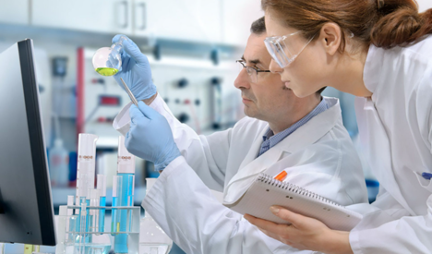InnoCare’s “novel TYK2 inhibitor” ushered in progress
October 15, 2024
Source: drugdu
 187
187
 Recently, InnoCare announced that the Phase II clinical study of ICP-488, a novel self-developed tyrosine kinase 2 (TYK2) inhibitor, in the treatment of moderate to severe plaque psoriasis, met the primary endpoint. In patients treated for 12 weeks, ICP-488 demonstrated superior efficacy and safety. ICP-488 met multiple efficacy endpoints in the once-in-a-day 6 mg and once-daily 9 mg dose groups, including Psoriasis Area and Severity Index (PASI) 75, PASI 90, PASI 100 (PASI score improvement from baseline ≥75%, ≥90%, and ≥100%), and static Clinician's Global Assessment (sPGA) 0/1 (i.e., complete or basic clearance of lesions).
Recently, InnoCare announced that the Phase II clinical study of ICP-488, a novel self-developed tyrosine kinase 2 (TYK2) inhibitor, in the treatment of moderate to severe plaque psoriasis, met the primary endpoint. In patients treated for 12 weeks, ICP-488 demonstrated superior efficacy and safety. ICP-488 met multiple efficacy endpoints in the once-in-a-day 6 mg and once-daily 9 mg dose groups, including Psoriasis Area and Severity Index (PASI) 75, PASI 90, PASI 100 (PASI score improvement from baseline ≥75%, ≥90%, and ≥100%), and static Clinician's Global Assessment (sPGA) 0/1 (i.e., complete or basic clearance of lesions).
The response rate of PASI 75 was 77.3% and 78.6%, respectively, in the once-daily 6 mg and 9 mg dose groups, compared with 11.6% in the placebo group (p<0.0001). The response rate of PASI 90 in the two dose groups reached 36.4% and 50.0%, respectively, compared with 0% in the placebo group (p<0.0001); The response rate of PASI 100 reached 11.4% and 11.9%, respectively, compared with 0% in the placebo group (p<0.05); The sPGA 0/1 response rate was 70.5% and 71.4%, respectively, compared with 9.3% in the placebo group (p<0.0001).
ICP-488 showed good tolerability and safety, with mild or moderate treatment-emergent adverse events (TEAEs) and treatment-related adverse events (TRAEs). This is a multicenter, randomized, double-blind, placebo-controlled, Phase II clinical study to evaluate the efficacy and safety of ICP-488 in Chinese adult patients with moderate to severe plaque psoriasis. A total of 129 patients were enrolled in the study and randomly assigned to three treatment groups in a 1:1:1 ratio, including 6 mg once daily, 9 mg once daily, and placebo for 12 weeks.
ICP-488 is an orally administered, highly selective allosteric inhibitor of TYK2 that inhibits the pathological processes of autoimmune and inflammatory diseases by specifically binding to the TYK2 JH2 domain and blocking the signal transduction of inflammatory cytokines such as IL-23, IL-12 and type I interferon. Moderate to severe plaque psoriasis is a market that has received widespread attention and is the most common form of psoriasis, accounting for about 80%~90% of psoriasis patients. With a better understanding of the pathogenesis of psoriasis, especially the role of the TNF-α/IL-23/Th17 signaling axis in disease progression, the role of biologics in the treatment of moderate to severe plaque psoriasis is becoming increasingly important.
According to incomplete statistics, there are 22 psoriasis biologics that have been marketed worldwide, many of which have been approved for marketing in China, including but not limited to secukinumab, ixekizumab, ustekinumab, guselkumab and tirelizumab. These biologics mainly target targets such as IL-17 and IL-23 and improve patients' symptoms by inhibiting the inflammatory response. In the domestic market, the proportion of biological agents for the treatment of psoriasis is gradually increasing, and it is expected that by 2030, the market size of biological agents for the treatment of psoriasis will reach about 40 billion yuan.
https://news.yaozh.com/archive/44337.html
By editorRead more on
- 20-Valent Pneumococcal Vaccine Approved for Clinical Trials January 20, 2026
- ADC205 Tablets Received Approval for Drug Clinical Trial January 20, 2026
- Sifang Optoelectronics makes strategic investment in Changhe Biotechnology January 20, 2026
- Mingde Bio plans to acquire a 51% stake in Hunan Lanyi through capital increase and acquisition January 20, 2026
- accelerating the transition of CLL treatment into a “chemotherapy-free era”. January 20, 2026
your submission has already been received.
OK
Subscribe
Please enter a valid Email address!
Submit
The most relevant industry news & insight will be sent to you every two weeks.



